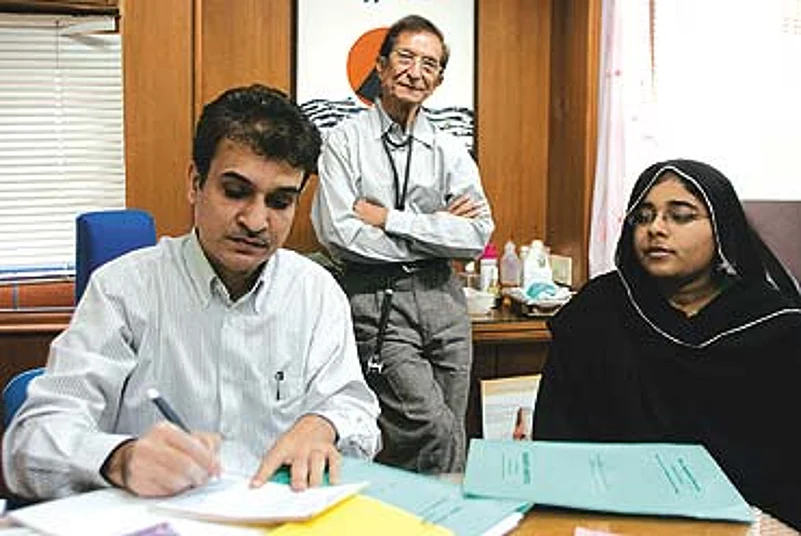
But you also see rural doctors enormously frustrated. Firstly, in the poorest parts of the country, by chronic hunger masquerading as normality. Woman after woman walks into a forest clinic, in her bright, best nylon sari, with carefully applied sindoor and a tentative smile for the doctor. To my untrained eye, she doesn't look like a famine victim, but the doctor grimly—and accurately—assesses that she weighs what a 12-year-old should. Because she goes to bed hungry every night, more diseases will attack her, and in more severe forms.
Equally frustrating for rural doctors is their close-up view, whether in the hills of Uttaranchal or the plains of Maharashtra, of a state healthcare machinery that's cynical, corrupt, non-accountable and non-functional, forcing patients to opt for rapacious private practitioners, quacks—or no medical care at all.
What also angers doctors working in rural areas are misconceptions that are rife about the healthcare needs of "simple and hardy" rural people. Rural poor, they point out, are prone, not just to the worst communicable diseases, but all the so-called "lifestyle diseases" lazily correlated only with urban excess, and never with rural poverty and stress. For instance, the rural poor show up, far from obese, with diabetes so advanced that diagnosis and amputation happens in a single session. Yet, affordable access to insulin is a dream when even getting a basic malaria test is hard.
Finally, what also disheartens rural medics, despite the daily endorsement they get from those they serve, is the dwindling numbers of doctors willing to join them. Some come to help out for a few months, at a camp or two, but rarely, to stay.
But still, these doctors wouldn't rather be anywhere else—job satisfaction is very high among this tiny minority. Well known among rural doctors are Abhay and Rani Bang, whose pathbreaking work on infant mortality and women's reproductive health in Maharashtra's Gadchhiroli district has changed global health policy. Here, we focus on those known to far fewer.






















